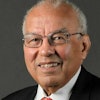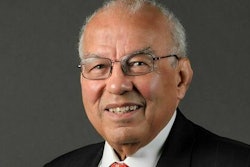W.E.B. Du Bois: A Towering Intellectual
“Well, you can say Marx, and then you can say Freud, but then you’d better say Du Bois really quickly in the triumvirate of seminal minds,” says John Edgar Wideman, novelist, essayist and distinguished professor of English at the University of Massachusetts-Amherst.
Dr. David Levering Lewis, the Martin Luther King Jr. professor of history at Rutgers University, agrees. “Today, it’s considered sufficient for a person to have one good idea to be called a genius. Du Bois had many.”
His first major idea was contained in The Suppression of the African Slave Trade, which Lewis calls “an extraordinary doctoral dissertation… It ended by saying that slavery was the result of the Founding Fathers blinking and was the first in the Harvard Historical Studies series. I’ll never know how he got away with making those moral judgments at the end. Objectivity was a god at that time; men of science were to be passionless.”
Next came The Philadelphia Negro, which Dr. Joe Feagin, graduate research professor of sociology at the University of Florida and a past president of the American Sociological Association, says virtually invented urban sociology. “It was the first urban field study by an American sociologist,” he explains.
“Du Bois famously went out and knocked on 7,000 doors,” Lewis adds. “Just imagine opening your door to this man with a handlebar moustache and a cane who then proceeds to ask a set of very personal questions. Why he wasn’t hit over the head is astonishing.”
Then there was The Souls of Black Folk —“an electrifying book,” according to Lewis. “Nothing like it had been written before.”














